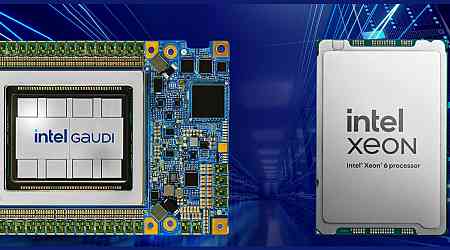Intel has spent most of 2024 investigating and trying to fix a problems that was causing crashes and instability for owners of its high-end 13th- and 14th-generation Core desktop processors. In April, Intel suggested that motherboard makers could be the problem because many motherboards used power settings that exceeded Intel's defaults.
By the summer, Intel had tracked down one root cause of the problems and had released a microcode update to resolve it: The CPUs were making “elevated voltage requests,” which could degrade performance and stability and damage the hardware over time. The company and motherboard makers released separate BIOS updates to fix the incorrect default power settings and the elevated voltage requests, but Intel said in August that it was still looking into other possible problems and fixes.
Today, the company is releasing what should be the final fix for the problem, which, as Tom's Hardware reports, is a confluence of four issues: too-high motherboard defaults, a bug that kept some CPUs from downshifting when they were running too hot, a bug where CPUs were being given too much voltage for an extended period, and a bug where CPUs were given too much voltage when they were idle.
That fourth and final problem is being fixed by a new 0x12B microcode update, which also includes the previously released fixes for the other problems. Motherboard manufacturers and PC makers will need to release new BIOS updates containing the new microcode, and you should install them as soon as you can once they're available.
As before, these bugs affect all K, KF, and KS-series Core i5, i7, and i9 processors in the 13th- and 14th-generation Core families, plus non-K-series Core i7 and Core i9 processors. Lower-end Core i5 and i3 CPUs and 12th-generation CPUs aren't affected. Intel says that the microcode updates have a negligible impact on performance.
If you've got one of those CPUs and you're already noticing crashes or instability, it means your CPU is probably damaged. While the microcode updates can prevent future damage, they can't fix damage that has already happened. Intel has extended the warranties on all affected processors from three years to five to cover customers who are having problems. This extended warranty applies whether you already own one of the affected CPUs or if you go out and buy a new one.
Rumors indicate that Intel is preparing to release its next-generation Arrow Lake desktop processors soon; like Intel's latest Lunar Lake laptop processors, these will be manufactured by TSMC instead of Intel, and they'll likely shed the generational branding for the newer "Core" and "Core Ultra" labels. Intel has said that Arrow Lake processors are unaffected by these voltage and stability issues.
































